In a remarkable turn of events, a biotech firm founded by Vivek Ramaswamy has seen its $15 million investment skyrocket to $5 billion through a strategic deal involving a bowel-disease treatment. The treatment, originally provided by Pfizer at no cost, has now been acquired by Roche for over $7 billion, as reported by The Wall Street Journal.
Roivant, the company backed by Ramaswamy, profited a staggering $5 billion from the sale, an incredible return on their initial investment of just $15 million for development.

Pfizer’s decision to hand over the treatment to Roivant for free occurred approximately eleven months ago, primarily to avoid the extensive research and development expenses. This treatment specifically targets an inflammatory protein known as TL1A.
Roche’s acquisition of this bowel-inflammation treatment marks a significant financial windfall for Roivant, which is further magnified by the fact that Pfizer provided the treatment at no cost.
Pfizer, in response to queries from Insider, clarified that their decision to partner with Roivant was motivated by research and development prioritization. The pharmaceutical giant will continue to benefit from the 25% stake it retained in addition to retaining full rights to the drug outside the United States and Japan.
The deal with Roche is expected to bring Pfizer approximately $1.4 billion, contributing to the overall $7.1 billion deal for the treatment’s developer, Telavant Holdings.
Pfizer expressed satisfaction with the outcome, emphasizing the liberation of research and development resources for other high-priority projects, while still maintaining royalties from U.S. and Japanese sales, their 25% stake, and rights beyond these regions.
Pfizer stated, “Taken together, this partnership allowed us to keep more than 50% of the total value of TL1A with zero incremental R&D spend.” The company also highlighted its 100% ownership of a next-generation p40/TL1A bispecific candidate in Phase 1, with Roche having the option to enter into a global development agreement for that asset with a 50/50 cost-sharing arrangement and co-commercialization rights with Pfizer, pending Phase 2 expected in 2025.
While the treatment has yet to gain approval from the Food and Drug Administration, the announcement of Pfizer’s licensing deal spurred a surge of interest in anti-TL1A therapies. Notably, just six days after Roivant’s agreement with Roche in December, shares in Prometheus Biosciences, a rival company with a similar drug, soared due to positive studies and were subsequently acquired by Merck for $10.8 billion.
In a recent development, Sanofi and Teva Pharmaceuticals announced a $1.5 billion collaboration for additional TL1A treatment possibilities, underscoring the market’s potential in various health sectors, including dermatology and gynecology.
Roche’s Chief, Teresa Graham, underscored the vast market potential, saying, “This is a $15 billion market just in the U.S., and that’s just in inflammatory bowel disease. This molecule clearly has megablockbuster potential.”




